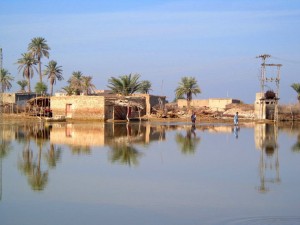Loss and Damage: The New Frontier
Perhaps the most important issue that is not taking as much media attention as are the other issues related to the Kyoto Protocol or finance at COP18 is “Loss and Damage” (L&D). It is one of the issues that is being hotly contested by both the developed and developing countries, with each pushing their own agendas forward. A decision on loss and damage is still pending at COP18 and is most likely to go through the high-level segment where ministers will take a final move on the issue.
So what is loss and damage?
Past actions by nations have been inadequate in responding to climate change impacts such as extreme weather events (floods, storms) and slow onset conditions (sea-level rise, desertification). When emissions reduction efforts (mitigation) fail and responses to climate impacts (adaptation) reach its limits, the subsequent effects result in permanent loss and damage. In this case, the loss and damage mechanisms come into play and rehabilitate and/or compensate affected communities for permanent loss and damage incurred that cannot be reversed.
International Framework on Loss and Damage
Currently, efforts are being put together to develop an international mechanism on compensation and rehabilitation. The developing countries and Alliance of Small Island Developing States (AOSIS) are calling for an international insurance facility to protect them against the damage of climate impacts. This requires money from the developed countries, who as historic emitters, need to mobilize additional funding than just the $100 billion they are currently being asked for. Of course, this is getting a lot of friction from the developed nations who see the concept of loss and damage having legal and moral consequences.
Last year in Durban, parties agreed to a work program on loss and damage, through which five expert meetings were held focusing on three thematic areas: assessing the risk of loss and damage, approaches and the role of the Convention (UNFCCC). As a next step, an international mechanism was to be agreed upon in Doha. However, developed nations oppose the idea and instead want to continue the work program (organizing five more workshops) for another year. They seem adamant in going on with the idea of compensation due to loss and damage. Developing countries also want a separate track to be established on loss and damage, but there is no convergence on it so far.
I sat with Ali Tauqeer Sheikh, Asia’s Director for Climate and Development Knowledge Network (CDKN), to talk more about the issue. Here’s what he has to say about loss and damage:




-
Sébastien Duyck
About the author
Farrukh Zaman
Farrukh is a climate activist and researcher from Karachi, Pakistan, where he spearheaded a youth movement on climate change.






